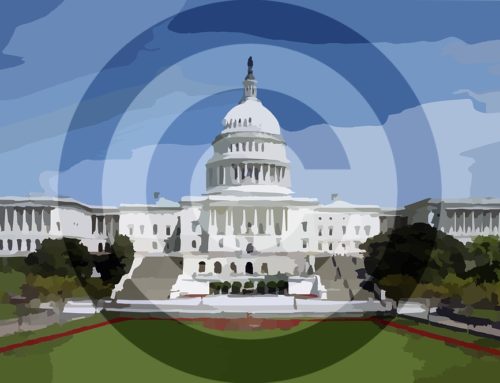Reform Roadblocks: Europe’s Controversial Copyright Directive Stalls
As 2018 drew to a close, it appeared as though Europe was moving forward with its newly enacted Copyright Directive. Although tech giants such as Google and YouTube continued to lobby against the legislation, proponents of the Directive had enough cause to celebrate after the European Parliament passed the proposal by a vote of 438-226. However, it now seems as though the stringent lobbying of the aforementioned tech giants may have paid off, as Europe’s proposed path towards copyright reform has hit a major roadblock this week.
As we’ve previously discussed, copyright reform is something that Europe has been in need of for some time as it looks to catch up with the ways in which the marketplace operates in the digital age. The Directive was initially heralded by many within the music industry as something that sought to overhaul both the ways in which musicians are compensated for the use of their work online, while also making it more difficult for copyrighted works to be uploaded to the internet without the permission of the rights holders. While this sounds perfect in theory, tech companies have been decrying the legislation as they see it as a mass enforcement of censorship on the internet. Both sides have been battling it out for months, and in recent weeks, some in the music industry have begun to criticize both the objectives and the implementation of the legislation. Most recently, the legislation has been described as one that will “make quality news harder to find, throw financial and technical roadblocks in the way of smaller online publishers and creators” while also “stifling free speech and negatively impacting internet culture.”
One particular component of the legislation has been especially criticized from all sides , albeit for a variety of different reasons. Article 13, as it has come to be known, would see the implementation of content filters on any website that hosts content.
While this component was initially celebrated by the music industry at large, it is now facing criticism after the Romanian Council presidency published a draft of the legislation which that included new exemptions for internet platforms from “liability, including if they have made best efforts to obtain a licence.”
In an open letter, executives from within the music industry claimed that this new draft “falls below the standard of the three texts produced by the three European Institutions and would not be an acceptable outcome of the negotiations.”
In light of this, the EU called off negotiations for a final vote — which were scheduled for January 21st — after 11 countries refused to support the latest incarnation of the draft. These countries, including Germany, Italy and the Netherlands, have previously opposed amendments to the legislation and have said that the latest draft does not do enough to protect users’ rights.
As it currently stands, Article 13 has been described as “draconian.” Considering the fact the EU does not currently include any provision of fair use within its copyright laws, Article 13 would likely have far reaching effects across multiple forms of media including “footage of movies, TV shows and the use of music used in critique or commentary.” Combined with Article 11, otherwise known as the “link tax,” the Copyright Directive will inhibit users’ access to the internet while still failing to provide content creators and established musicians alike with a streamlined and fair method of compensation and credit.
European elections are scheduled for May, and with negotiations delayed this week, it is unlikely that a final vote on the Copyright Directive will happen before then. If a compromise on the draft isn’t found by the end of February, it is possible that the legislation could be dismissed entirely. In order to move forward with the legislation, another version of the draft will need to be tabled. Following that, in order for the draft to be passed it will need to receive a “qualified majority.” As since each country in the EU is attributed a percentage in parliamentary votes based on the country’s population. The qualified majority will need to exceed 50% of the attributed percentages. For example, if 13 out of 25 countries vote in favour of a newly proposed draft, those 13 countries will need to possess enough of an influence based on their attributed percentage in order for the draft to pass. This is why, the criticisms leveled against the legislation from heavy-hitting countries such as Germany and Italy are of note.
As it stands, the longer the legislation stays in this process of limbo, the more criticism it gathers will face from tech companies, rights holders and citizens alike. Although the proposal has hit a brick wall as of late, it is not off the table entirely. However, it appears as though there are some European MPs who are listening to the cries of criticism from the public and are using their influence to attempt to turn this proposed reform into something that will work for everyone, especially those who need it most: users and creators. Although things don’t look set to improve online anytime soon, we can count on the fact that they won’t be getting worse just yet either.




